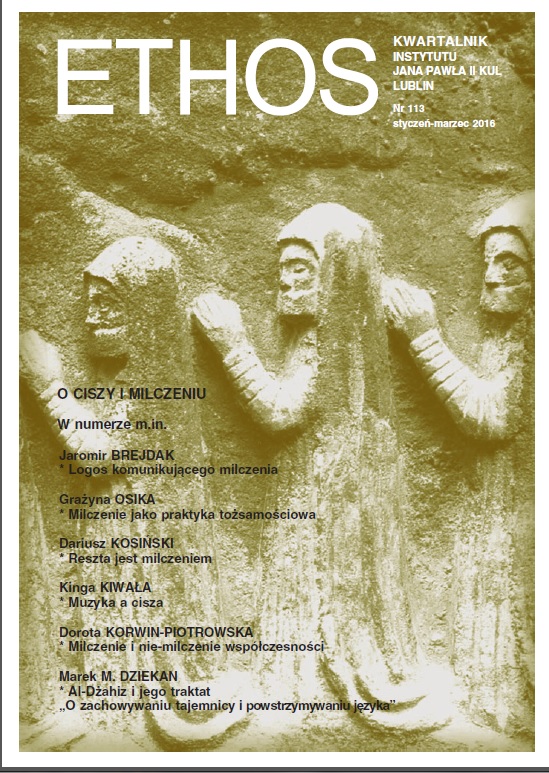Miejsca milczenia. Przemilczenia jako element kształtowania się kontekstów świadomości dzieci i młodzieży z chorobą nowotworową
Areas of Reticence: On Not Speaking as an Element of Shaping the Consciousness of Child and Adolescent Cancer Patients
Author(s): Monika NowakContributor(s): Dorota Chabrajska (Translator)
Subject(s): Clinical psychology, Behaviorism, Health and medicine and law
Published by: Katolicki Uniwersytet Lubelski Jana Pawła II - Instytut Jana Pawła II, Wydział Filozofii
Keywords: cancerous disease in children and adolescents; death; taboo; consciousness; mutual pretending;
Summary/Abstract: In the case of children and adolescents cancer involves a special fear caused by its being a threat to life and a threat of death. Insecurity, aggressive therapy with all its consequences, as well as stigmatization of the patients resulting from the changes in their appearance and the limitation of their active life, give rise to numerous strenuous situations. Fighting cancerous disease is an extreme experience for the sick children and adolescents, as well as for their parents. Informing the patients of their condition belongs among the most difficult problems of the period of therapy. Based on the scraps of information they receive, children patients usually conceptualize their illness as well as themselves as sick persons. The process in question exemplifies four stages: (1) I am seriously ill. (2) I am seriously ill, but I am going to be well. (3) I am still ill, but I will recover. (4) I am still ill and I will never recover. (5) I am dying. Depending on the effectiveness of the treatment, sick children and adolescents may either stop, at a given stage, their conceptualization of the sickness that affects them or go through all the stages, experiencing death closing in on them. In order to psychologically survive the period of therapy both sick children and their parents adopt the strategy which consists in ‘pretending,’ marked by mutual reticence as to the information about the child’s actual condition, as well as by numerous taboo issues which are not discussed. Recourse to reticence marks not only the period of the patient’s dying, but is made at every stage of therapy and the child’s conceptualization of his or her own illness. Reticence concerns issues such as the illness as such, the side effects of the therapy (which affect the patient’s appearance), and death (the death of the patient and the death of other patients).
Journal: Ethos. Kwartalnik Instytutu Jana Pawła II KUL
- Issue Year: 29/2016
- Issue No: 1
- Page Range: 221-240
- Page Count: 20
- Language: Polish
- Content File-PDF

